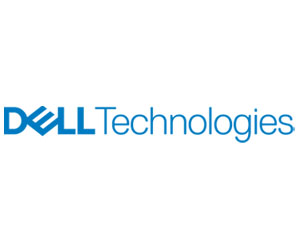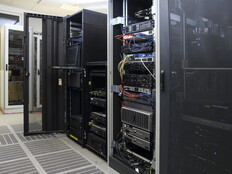The rate of data generation has increased exponentially in recent years, and successful organizations are always looking for ways to mine the value that data contains. Ultimately, though, it must be stored somewhere, and the sudden explosion in the creation of data has pushed many organizations to seek out storage platforms that meet multiple needs.
Michael Dell, CEO of Dell Technologies, said in the opening keynote of this year’s Dell Technologies World conference that his company is uniquely positioned to deliver a storage foundation that suits a multicloud ecosystem. “Our collaboration with major public clouds is extended to our file block and object storage software,” he said. “The goal was to allow you to take advantage of Dell’s storage software while leveraging the breadth of public cloud services to bring our enterprise-class data services to the public cloud.”
Dell also announced a new partnership with Snowflake, which he said would add valuable capabilities to Dell’s storage platforms. “First is the ability to move on-premises data from Dell object storage to the Snowflake Data Cloud for analysis. But second, for those of you that don’t want to send your data to the cloud for compliance and security reasons, we are offering an exciting alternative: For the first time, you can extend Snowflake’s cloud-based analytics to object storage on-premises without the need to move any of your data to the cloud.”
LEARN MORE: See how Dell Technologies helps businesses store their data securely.
Dell Introduces New and Updated Storage Platforms
With so many advancements in the company’s multicloud offerings, Jeff Clarke, Dell’s vice chairman and co-COO, addressed the need for secure data storage. Acknowledging that most data is now generated outside the data center, Clarke said, “Data gravity is pulling those computation and storage resources to where the data is being created.”
Clarke’s keynote session included the introduction of new features for some of Dell’s storage offerings. “Today’s announcements are really a trifecta of storage-driven innovation across our industry-leading storage portfolio, delivering more than 500 new, high-value features for PowerMax, PowerStore and PowerFlex that enable a continuously modern storage experience with highly adaptable software architectures, comprehensive cyber resiliency and multicloud flexibility.”
In addition, Dell Vice President of Product Management Caitlin Gordon presented a preview of the company’s Project Alpine. “Project Alpine is our initiative to bring our block, file and object storage software to all of the major public clouds. Our goal with Project Alpine is really to enable operational consistency, drive greater efficiency and simplify data mobility,” she said.
Dell Enhances Its Solutions for Cyber Recovery and Protection
Dell also introduced an addition to its data protection offerings with Dell APEX Cyber Recovery Services. According to a press release, the new solution “simplifies recovery from cyberattacks. Dell manages the day-to-day cyber recovery vault operations and assists with data recovery. Dell is delivering an as-a-Service experience with standardized configurations, simplified Dell-assisted recovery options and expertise from nearly 2,000 isolated vault solutions deployed globally.”
Dell co-COO Chuck Whitten also announced expanded availability for the company’s PowerProtect cyber vaults. “We launched PowerProtect and cyber recovery for AWS to protect business critical workloads in the cloud with an isolated cyber recovery vault,” he said.
“Today, we’re announcing new options for PowerProtect vaults in public clouds, continuing to provide you with access to Dell’s portfolio of data protection offerings in public clouds. First up, and building off our PowerProtect cyber recovery solution for AWS, we’re pleased to announce CyberSense for AWS,” Whitten said. He explained that the new solution would add “adaptive analytics, machine learning and forensic tools to detect, diagnose and accelerate data recovery.” And while it’s only available with AWS right now, Dell will be rolling out the same service for Microsoft Azure later this year.
Brought to you by:












